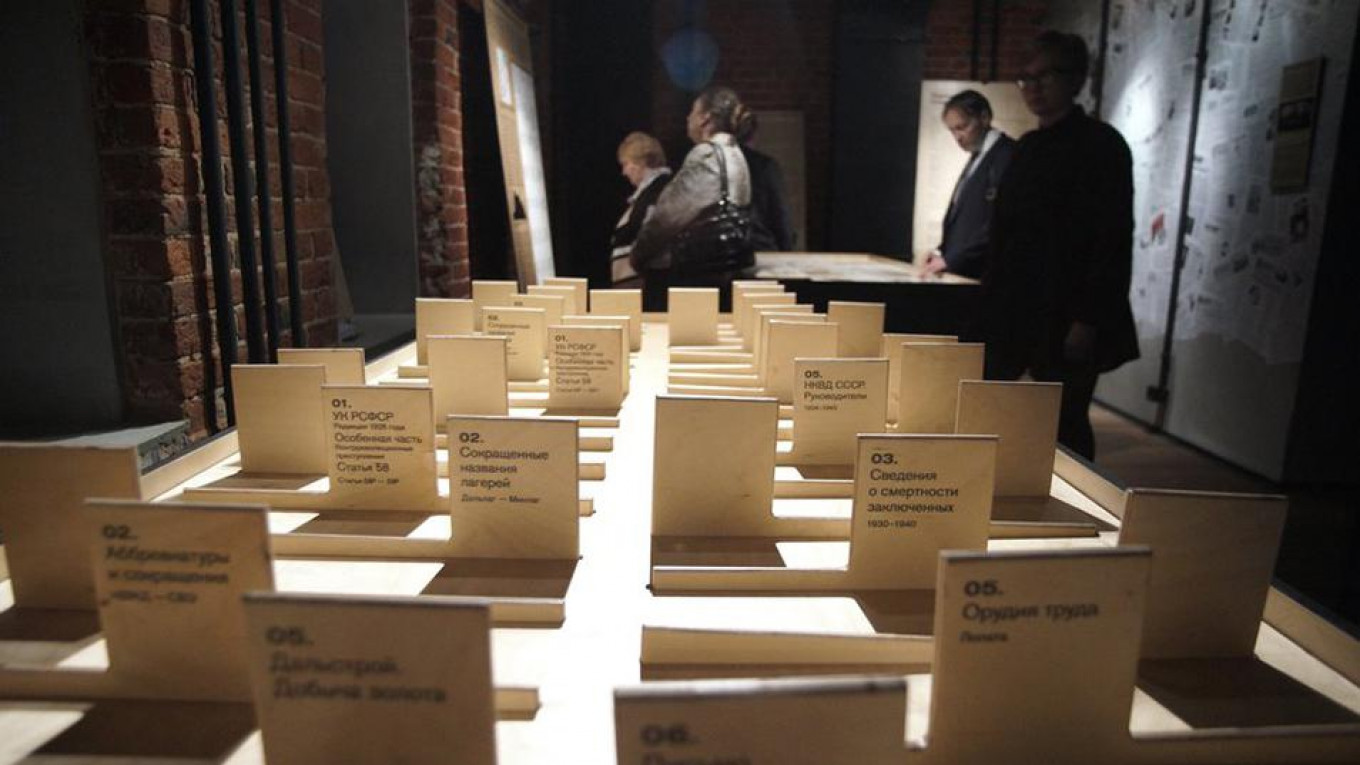Russia’s Interior Ministry has denied reports that records of Soviet-era gulag labor camp survivors are being destroyed, saying instead that the files are being digitized.
The Gulag Museum in Moscow alleged last week that cards with the personal information of former inmates and their release dates were being permanently destroyed under secret inter-agency orders. A senior Interior Ministry official denied the existence of the 2014 decree that the museum alleges mandated the destruction of paper records once an ex-inmate turned 80 years old.
“The alphabetic cards removed from paper files after their storage period expires are mandatorily converted to a digital format, ensuring their permanent storage,” the ministry said in a statement to the Meduza news website Wednesday.
Paper records are only kept when the gulag prisoners were sentenced for crimes against the state, or when the so-called “registration cards” hold academic or historical value, the ministry said.
Reports that gulag prisoners’ records were being destroyed sparked fears that authorities were attempting to erase the history of Soviet political repression.
“We are seriously alarmed because this would have destroyed a unique source about the fate of the convicts,” Yelena Zhemkova, acting head of the human rights group Memorial, told the RBC business portal.
A Message from The Moscow Times:
Dear readers,
We are facing unprecedented challenges. Russia's Prosecutor General's Office has designated The Moscow Times as an "undesirable" organization, criminalizing our work and putting our staff at risk of prosecution. This follows our earlier unjust labeling as a "foreign agent."
These actions are direct attempts to silence independent journalism in Russia. The authorities claim our work "discredits the decisions of the Russian leadership." We see things differently: we strive to provide accurate, unbiased reporting on Russia.
We, the journalists of The Moscow Times, refuse to be silenced. But to continue our work, we need your help.
Your support, no matter how small, makes a world of difference. If you can, please support us monthly starting from just $2. It's quick to set up, and every contribution makes a significant impact.
By supporting The Moscow Times, you're defending open, independent journalism in the face of repression. Thank you for standing with us.
Remind me later.






